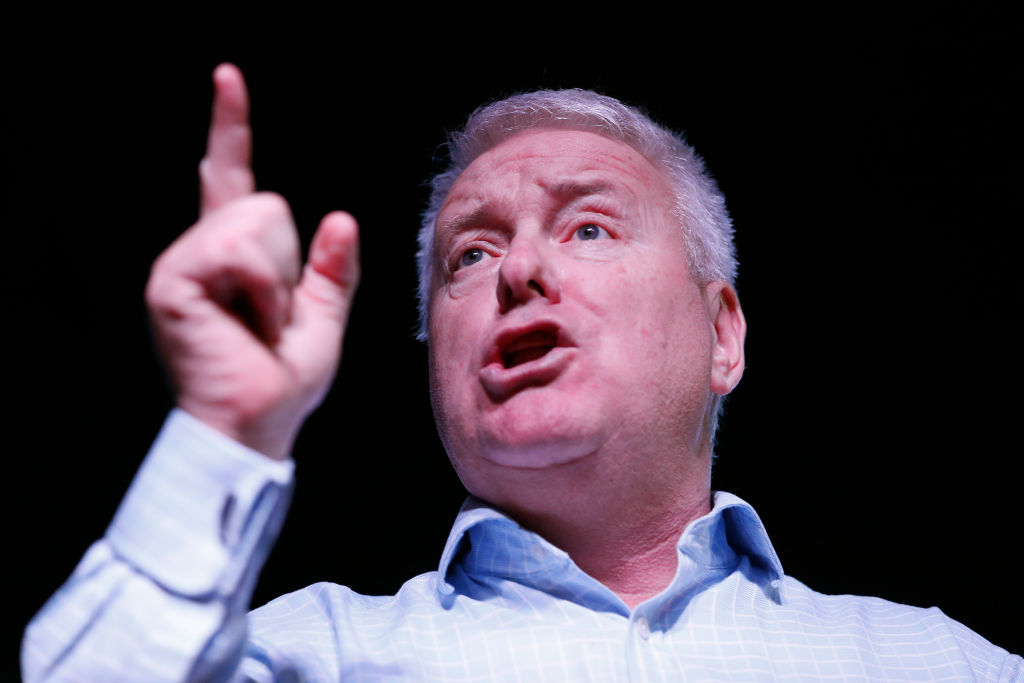Labour chairman Ian Lavery has expressed hope that the coronavirus crisis could provide his party with a ‘great opportunity’. Lavery’s comments have been attacked for being in desperately poor taste. For on one reading, here was a leading Labour figure sounding upbeat over how his party could take political advantage of a global pandemic. The reality is however slightly different. Lavery undoubtedly expressed himself in a crass way but he was actually hoping the crisis would see Labour members help bring people together and organise community activities to alleviate the crisis. But Lavery’s comments – and the reaction to them – establish, as if we did not know, that politics never goes away. And for the official opposition any national crisis presents opportunities as well as dangers. There is always a tension on the opposition benches, between serving the national interest and promoting its own partisan interest.
There have been many false comparisons between the present crisis and the Second World War. But so far as Labour’s position is concerned they are more than apt. For when war was declared in September 1939, Labour was also in opposition. From the outset its parliamentary leaders agreed to an electoral truce, which meant not contesting by-elections for the duration. By no means were all Labour members happy with such cooperation, as they regarded Neville Chamberlain’s Conservative-led government as the very embodiment of the class enemy. Even so, this agreement did not imply a political truce. The historian Paul Addison has described Labour’s position as that of a ‘patriotic gadfly’, supporting as it did the nation’s war effort, cooperating in the drafting of necessary legislation but still being free to criticise Chamberlain’s failure to prosecute the conflict more aggressively and to sufficiently protect the interests of ordinary Britons during the national emergency.
Labour’s awkward balancing act might have continued had it not been for the disastrous Norwegian campaign exposing Britain’s lack of preparedness for war. This led to Labour calling for a vote of no-confidence in Chamberlain, which forced the now-discredited prime minister to seek to form a coalition with Labour to shore up his position. Clement Attlee refused to countenance this, giving Winston Churchill – a man in whom the Labour leader did have confidence – the chance to form his own administration in May 1940 with Attlee as his deputy just as German tanks broke through the Ardennes to force ill-led British troops to retreat to Dunkirk.
Labour’s position in 2020 is much more awkward than in 1939-40 because the coronavirus crisis broke out during its protracted leadership election. It is currently led by a discredited figure decisively rejected by voters just a few months ago. Even so, some Jeremy Corbyn loyalists – just over 5,000 – want the party to suspend the contest ‘in the national interest’. Despite that plea, the vacuum at the top will be resolved by 4 April when most expect Keir Starmer to become leader. Starmer, along with the other two candidates have assumed Labour’s previous wartime role of ‘patriotic gadfly’, supporting the government in its overall ambition of containing the spread of the virus but criticising Boris Johnson for his tardy and inconsistent response.
Having an accomplished lawyer like Starmer in charge should help Labour make a better fist of its response to the crisis: the need to hold the government to account has, after all, been a central element of his leadership pitch. A new leader might impose some coherence on the party. Labour’s overall response so far has veered from shadow health secretary Jon Ashworth winning praise from unlikely quarters for his constructive criticism of the government to an intemperate Momentum video accusing the Conservative party of having ‘blood on its hands’. This illustrates all too clearly the depth of divisions within the party when it comes to politics more generally.
But whoever leads the party, the opposition is not in control of Britain’s response to the coronavirus. For good or ill that is the responsibility of Boris Johnson. And in the wake of his announcement of a lock-down Johnson now enjoys the support of 93 per cent of the country. This might crumble if the number of deaths increases unduly and Britons wonder why it took so long for the Prime Minister to adopt the necessary response. Just as in 1940, the opposition’s greatest opportunity lies in the incompetence of the government.
Steven Fielding is professor of political history at the University of Nottingham and is writing ‘The Labour Party: from Callaghan to Corbyn’ for Polity Press, to be published in 2021. On Twitter he is @PolProfSteve






Comments